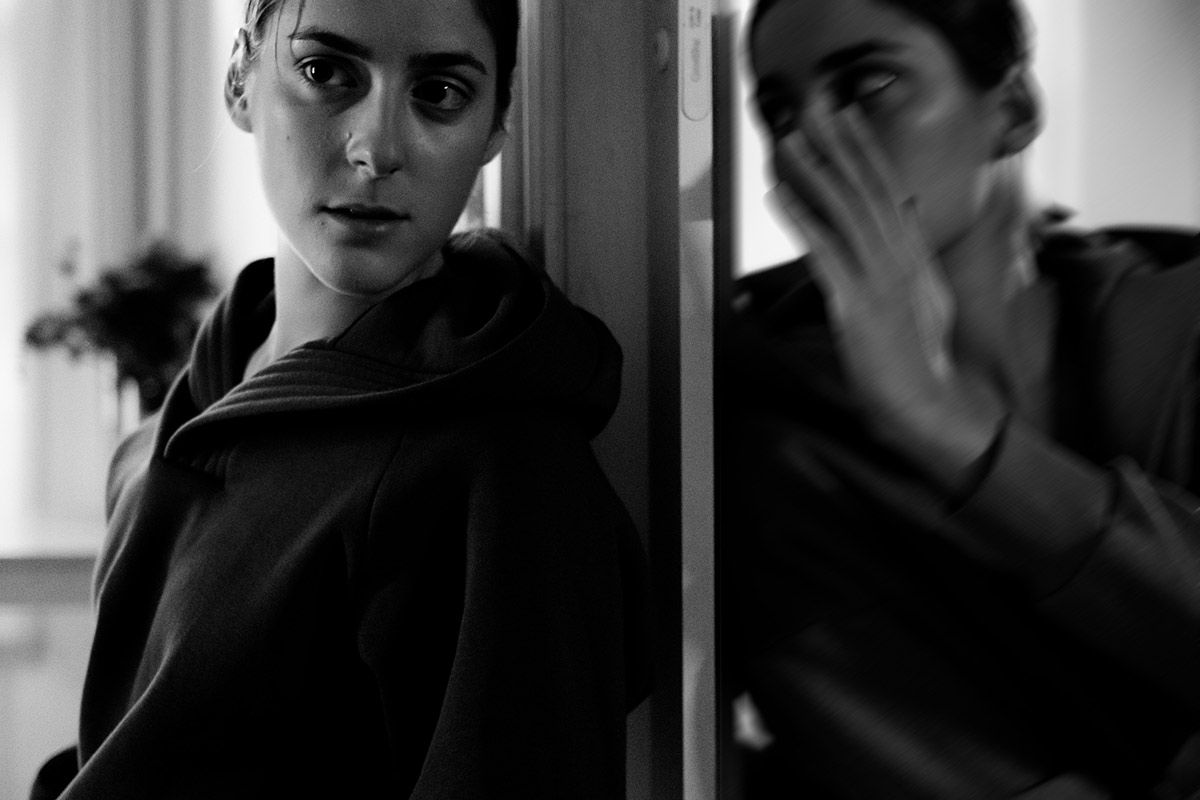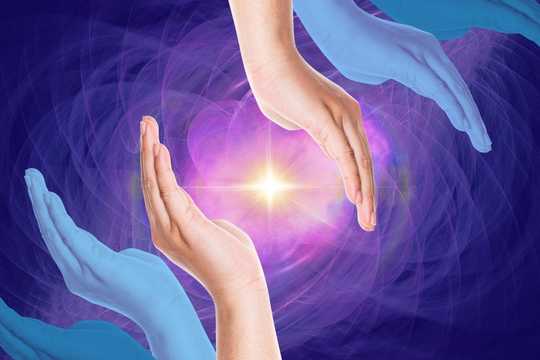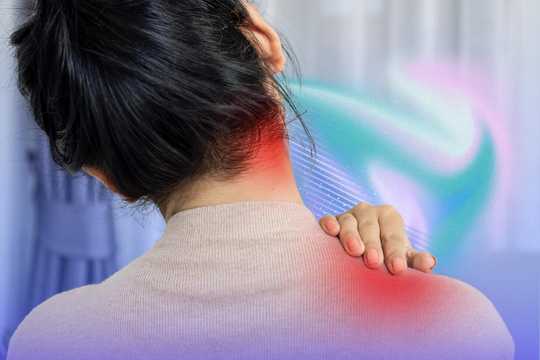Maybe you’ve heard stories about people having permanent personality changes after psychedelic experiences. This has led many to fear these substances. But is there scientific evidence of psychosis after psychedelics? Let’s delve into the question, can psychedelics cause psychosis?
What is Psychosis?
It’s no secret that psychedelic medicine can cause changes in personality and how we see the world. These changes are often why patients seek psychedelic therapy in the first place. It’s helped many people ease addiction, decrease depression, and alleviate anxiety.
But psychosis is another matter. It’s a break from reality, characterized by dissociative changes that affect a person’s ability to connect with others and the world. Psychosis may also include delusions, paranoia, or hallucinations. A person may have mood swings, sleep problems, anxiety, depression, and social withdrawal [1]. People often describe these episodes as deeply scary and confusing [2].
These symptoms may make you think of schizophrenia or schizoaffective disorder. But there are important distinctions between these long-term diagnoses and psychosis.
For one, psychosis is a symptom of both schizophrenia and schizoaffective disorder. Even within the context of these diagnoses, psychosis states can be transient. Patients may go through delusional periods, and then times of insight and understanding.
This leads us to our next distinction, which is that psychosis is a temporary state. During active psychosis, patients may behave and think very differently from how they usually would. With time and treatment, they can return to a more “normal” head space. This is also why identifying psychosis, and treating it early, are so important.
Psychosis is more common than you may think, and young people are especially at risk. According to the National Alliance on Mental Illness, about 100,000 young people go through an episode of psychosis every year. As much as 3% of people will experience psychosis at some point in life [2].
Follow your Curiosity
Sign up to receive our free psychedelic courses, 45 page eBook, and special offers delivered to your inbox.In the past, psychedelics were commonly called psychotomimetic substances. This means that their temporary effects can mimic psychosis: hallucinations and delusions [3]. These are often accompanied by changes in logical thinking and cognition. Psychedelics have even been used to mimic psychosis in research [4].
But how similar are the effects of psychedelics to the symptoms of psychosis? Are the two states neurologically similar? Let’s compare them.
Comparing the effects of psychedelics with psychosis
On the synaptic level, psychosis and ‘tripping’ have distinct causes. Schizophrenia and schizoaffective disorder are linked to changes in dopamine and glutamate in the brain [5]. Psychedelics, like LSD and psilocybin, work by stimulating serotonin receptors [4]. The mechanisms of these processes are distinctly different from one another.
Both states cause the Default Mode Network, or DMN, to slow down or deactivate. This is a network of areas in the brain that becomes active when a person is not focused on the outside world [6], like during daydreaming. This could mean that both states cause people to pay attention to external stimuli rather than internal thoughts [4].
Yet they are also associated with different areas of the brain. In psychosis related to schizophrenia, associative networks are on overdrive. These networks help us put together past memories and ideas into associations. Psychotic hallucinations and paranoia may come from making too many new and past associations [4].
On the other hand, psychedelic substances are associated with the primary sensory cortices in the brain. These areas are over-activated during psychedelic experiences. This over-activation could cause the strong sensory experiences that we associate with psychedelics [4].
The effects of both states also have big differences. Psychedelic-induced experiences often have a strong visual component. This may include geometric shapes and designs. People undergoing psychedelics typically remain insightful, meaning that they know they are having a psychedelic experience [4].
In states of psychosis, hallucinations tend to be more auditory. People often hear voices during these states. They are also more likely to lose accurate perceptions of reality, as well as insight into their mental state [4]. The state of psychosis is truly fearful for people who go through it because they believe their hallucinations and paranoia to be real.
Even though the two states are different, they can seem similar to laypeople. Let’s talk about what we know about the link between psychedelics and psychosis.
Can psychedelics lead to psychosis?
Based on the best research we have, there is no link between psychedelics and psychosis. Let’s go over this research.
A large population study, published in 2015, found no link between classic psychedelics and a person’s likelihood to experience psychological distress. The people that used psychedelics were no more at risk for psychosis than anyone else. This study also disproved any association between psychedelics and mental health treatment, suicidal ideation, depression, and anxiety [7].
A separate 2015 study found that psychedelic use was actually associated with decreased odds of experiencing psychological distress and suicidality [8]. Psychedelic therapy has even been suggested as a mood stabilizer for these reasons.
Yet many people remain wary of scary experiences from psychedelics. It’s true that unpleasant experiences, like “bad trips”, do happen. These stories can be terrifying and salient. But they’re either quite rare, or they don’t have lasting consequences for mental health.
Culturally, we have a specific association between LSD and drug-induced psychosis or schizophrenia. Is there a specific link between LSD and mental health problems?
LSD and drug-induced psychosis
Rarely, a person undergoing an LSD experience may experience psychotic symptoms. The powerful stories of ‘bad acid trips’ have seeped into our common consciousness. These experiences can be terrifying both for the patient and the people around them.
One of the effects of LSD can be a loss of personal insight, or even an ego-death. Users may be experiencing these for the first time ever, which can be understandably frightening. Yet even fearful experiences can be integrated and explored safely with psychedelic therapy [9].
When psychosis does happen in association with LSD, it’s important to look at the whole picture of the patient. Past mental health diagnoses and substance abuse are linked to LSD-induced psychosis [10]. It’s possible that LSD could exacerbate underlying mental health problems for people who are more vulnerable to its effects.
For instance, someone with a psychotic disorder could find a psychedelic experience to be triggering. Entering a more chaotic mind state could lead to worsening hallucinations and delusions for people who are predisposed to those patterns of thought. Unfortunately, trials have yet to include people with psychotic disorders so we have little data on this triggering effect.
Before choosing psychedelic therapy, patients should be aware of these risks. History of psychosis may increase the risk of LSD-induced psychosis, or schizoaffective symptoms. But did you know that more common substances can cause psychosis?
What common substances can cause psychosis?
Marijuana and psychosis
With much more widespread use than psychedelics, marijuana has long been associated with psychosis [11]. Even as far back at 2737 AD, cannabis was said to “produce visions of devils”, and cause spiritual changes over time [12]. Researchers used marijuana far before LSD to mimic and study psychosis [13].
There’s some controversy over the long-term psychological effects of cannabis use. One famous study found that people who used marijuana before they were 18 were more than twice as likely to develop schizophrenia, and heavy users were more than six times as likely [14].
But more recent research posits that marijuana is not a direct cause of schizophrenia. Like in LSD, it could be that people with a history of psychotic disorders are more at risk. Heavy marijuana use could exacerbate these disorders rather than cause them.
A recent study in Denmark reported that rates of schizophrenia associated with cannabis use disorder had increased three to four times in the last 20 years [15]. We need more research including participants with past history of psychotic disorders to better understand this link, if there is one.
Stimulants and psychosis
Common ADHD medications, amphetamines, and even caffeine, also carry risk for psychosis [16]. These substances increase dopamine in the brain, mimicking schizophrenia in some patients [17]. Acute instances of psychosis last about a week, but the patient may never fully recover.
Patients may be more at risk of psychosis related to stimulant use if they take more than is prescribed at one time. College students, for instance, may take more of their ADHD medication, combined with caffeine, before a big exam.
Alcohol and psychosis
Patients with alcohol use disorder may experience acute or chronic psychosis [18]. This psychosis is more severe than alcohol withdrawal or intoxication, involving hallucinations and delusions [19]. Psychosis is most common among people who began using alcohol in childhood, those who live alone, are unemployed, and in struggling socioeconomic status.
None of this information is meant to scare you. While all of these substances carry the risk of psychosis, it’s still relatively rare. Using safe amounts of alcohol, caffeine, and marijuana should not cause psychosis in someone without a history.
Can psychedelics cause psychosis?
The fear around psychedelic-induced psychosis seems to be unfounded. But caution is still necessary.
While LSD specifically carries risks, the incidents of psychotic symptoms are rare. It’s important to note that other, much more common substances can cause psychosis. With time, we hope that these urban-legend stories about psychedelics will give way to better understanding of psychedelics and their amazing potential.
If you are a clinician concerned about harm reduction for LSD-integration therapy, check out our free resources.
Are you interested in psychedelic therapy for you or someone else? You can find a psychedelic therapist near you on our search page, or read more about psychedelic therapy on our articles page.
References:
- U.S. Department of Health and Human Services. (n.d.). What is psychosis? National Institute of Mental Health. Retrieved February 2, 2022, from https://www.nimh.nih.gov/health/topics/schizophrenia/raise/what-is-psychosis
- Psychosis. NAMI. (n.d.). Retrieved February 2, 2022, from https://www.nami.org/About-Mental-Illness/Mental-Health-Conditions/Psychosis
- McGraw-Hill. (1993). Encyclopedia of Science and Technology, 5th Edn. New York: The McGraw-Hill Companies Inc.
- Leptourgos, P., Fortier-Davy, M., Carhart-Harris, R., Corlett, P. R., Dupuis, D., Halberstadt, A. L., Kometer, M., Kozakova, E., LarØi, F., Noorani, T. N., Preller, K. H., Waters, F., Zaytseva, Y., & Jardri, R. (2020). Hallucinations under psychedelics and in the schizophrenia spectrum: An interdisciplinary and multiscale comparison. Schizophrenia Bulletin, 46(6), 1396–1408. https://doi.org/10.1093/schbul/sbaa117
- Howes, O., McCutcheon, R., & Stone, J. (2015). Glutamate and dopamine in schizophrenia: an update for the 21st century. Journal of psychopharmacology (Oxford, England), 29(2), 97–115. https://doi.org/10.1177/0269881114563634
- Default mode network. Default Mode Network – an overview | ScienceDirect Topics. (n.d.). Retrieved February 2, 2022, from https://www.sciencedirect.com/topics/neuroscience/default-mode-network
- Johansen, P.-Ø., & Krebs, T. S. (2015). Psychedelics not linked to mental health problems or suicidal behavior: A population study. Journal of Psychopharmacology, 29(3), 270–279. https://doi.org/10.1177/0269881114568039
- Hendricks, P. S., Thorne, C. B., Clark, C. B., Coombs, D. W., & Johnson, M. W. (2015). Classic psychedelic use is associated with reduced psychological distress and suicidality in the United States adult population. Journal of Psychopharmacology, 29(3), 280–288. https://doi.org/10.1177/0269881114565653
- Wießner, I., Falchi, M., Palhano-Fontes, F., Feilding, A., Ribeiro, S., & Tófoli, L. F. (2021). LSD, madness and healing: Mystical experiences as possible link between psychosis model and therapy model. Psychological Medicine, 1–15. https://doi.org/10.1017/s0033291721002531
- Vardy MM, Kay SR. LSD psychosis or LSD-induced schizophrenia? A multimethod inquiry. Arch Gen Psychiatry. 1983 Aug;40(8):877-83. doi: 10.1001/archpsyc.1983.01790070067008. PMID: 6870484.
- Paparelli, A., Di Forti, M., Morrison, P. D., & Murray, R. M. (2011). Drug-induced psychosis: How to avoid star gazing in schizophrenia research by looking at more obvious sources of light. Frontiers in Behavioral Neuroscience, 5. https://doi.org/10.3389/fnbeh.2011.00001
- Beringer, K. (1927). Der Meskalinrausch. Seine Geschichte und Erscheinungsweise. Berlin: Julius Springer.
- Hofmann, A. (1980). LSD – My Problem Child. New York: McGraw-Hill. https://maps.org/images/pdf/books/lsdmyproblemchild.pdf
- Andréasson S, Allebeck P, Engström A, Rydberg U. Cannabis and schizophrenia. A longitudinal study of Swedish conscripts. Lancet. 1987 Dec 26;2(8574):1483-6. doi: 10.1016/s0140-6736(87)92620-1. PMID: 2892048.
- Hjorthøj C, Posselt CM, Nordentoft M. Development Over Time of the Population-Attributable Risk Fraction for Cannabis Use Disorder in Schizophrenia in Denmark. JAMA Psychiatry. 2021;78(9):1013–1019. doi:10.1001/jamapsychiatry.2021.1471
- Hedges DW, Woon FL, Hoopes SP. Caffeine-induced psychosis. CNS Spectr. 2009 Mar;14(3):127-9. doi: 10.1017/s1092852900020101. PMID: 19407709.
- Henning, A., Kurtom, M., & Espiridion, E. D. (2019). A Case Study of Acute Stimulant-induced Psychosis. Cureus, 11(2), e4126. https://doi.org/10.7759/cureus.4126
- Stankewicz HA, Richards JR, Salen P. Alcohol Related Psychosis. [Updated 2021 Jul 19]. In: StatPearls [Internet]. Treasure Island (FL): StatPearls Publishing; 2022 Jan-. Available from: https://www.ncbi.nlm.nih.gov/books/NBK459134/
- Tamminga, C. (2022, January 24). Substance-/medication-induced psychotic disorder – psychiatric disorders. Merck Manuals Professional Edition. Retrieved February 2, 2022, from https://www.merckmanuals.com/professional/psychiatric-disorders/schizophrenia-and-related-disorders/substance-medication-induced-psychotic-disorder






